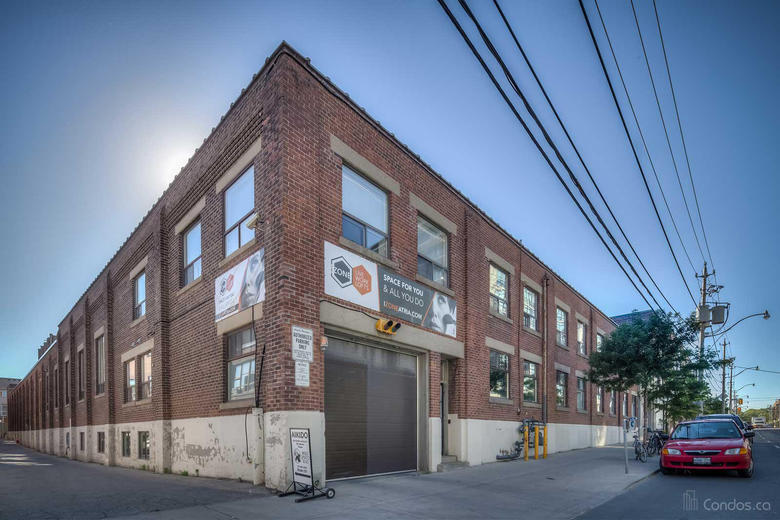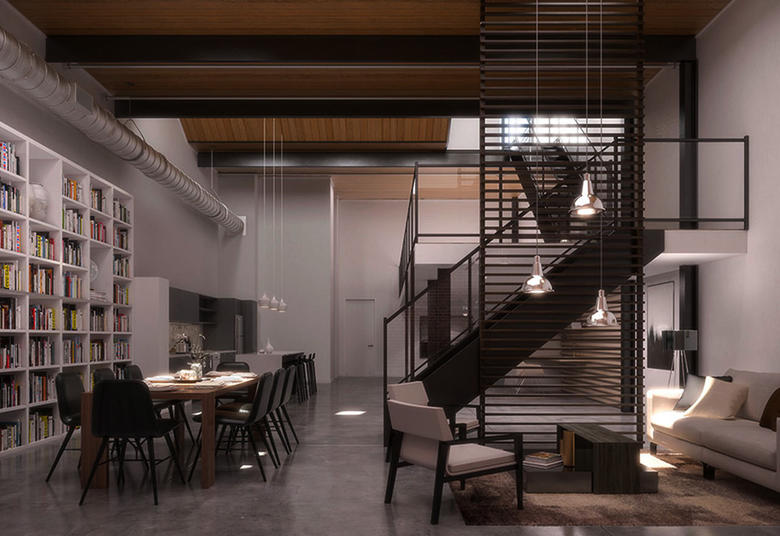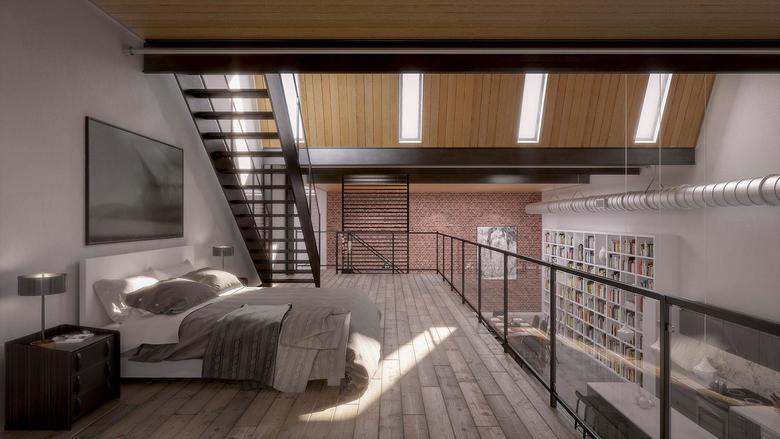Are you the type of person who has great discipline when it comes to work? Do you like being your own boss? Do you wish you could avoid long commutes into the city? If you answered yes to these questions, then you may enjoy having a live/work property.
There is not a lot information on live/work properties out there, so this article will detail types of live/work properties, who is suitable for such properties, which areas to look in Toronto, and how to finance these properties.
Types of Live/Work Properties
A live/work property is a property that has both a residential and a commercial/office component occupied by the same resident. The property has to be the primary dwelling for the resident.
Note that many people who work-from-home in a room they call an office are not necessarily living in a live-work property unless. For a property to be classified as live/work, it is deemed so by the municipality. Otherwise, that person is simply doing work from a residential property.
Usually when people think of live/work properties, they think of a two-story building where the shop is downstairs and the owner’s family lives upstairs. This type of property was much more commonplace before the Industrial Revolution, but nowadays, most of these properties have been demolished and replaced by high-rises in Toronto.
Currently, popular live/work spaces in Toronto include old warehouses that have been renovated for use as a work space as well as a living space. There are also newer condo developments that have been zoned and designed specifically as a live/work space. These spaces may offer lofts, where you can put a living space upstairs and a work area downstairs.
Who Suits Live/Work Properties
Live/Work properties can be a good option for those who want to work for themselves and be located near the downtown core without paying for expensive office space. Such properties may appeal to professionals in the creative industries, like musicians, photographers, painters, graphic designers, and other artists. It can also be great for entrepreneurs and freelancers. The similarity between all these people is that they want to work from a home office or space, but they also need to attend events or meet clients near the city core.
For these types of people, they save a lot of money by not having to rent a separate office space, which would be very expensive in downtown. They also get to work in a work space that is designed specifically for them (e.g., large warehouse rooms for artists) or at least a space that is more inspiring than a typical office room. Finally, they don’t have long commutes. Not only does that save money, but the time savings can result in breakthroughs in productivity given the nature of these professionals’ work. It can also provide better work-life balance since you work where your family lives.
With all these benefits being said, a live/work property might not be the best choice for those who are prone to distractions or work-a-holism. Also, if your commercial operation requires more space in the future, it’s going to be hard to expand your commercial area. You would probably need to look for a bigger space elsewhere or rent a commercial property. Similarly, if your living space is very small and you plan to have a family in the future, then a live/work property may not be suitable.
Which Areas to Look in Toronto
Some of the best areas to look in are the Garment Factory, I-Zone on Carlaw, Dundas and Queen Street area. These areas have buildings zoned specifically for live-work spaces.

I-zone Worklofts. Photo by Condos.ca

I-zone Loft Interior by Atria Development
Other sought-after areas include the Entertainment District, High Park, Kensington, and parts of burgeoning King Street West. These areas may have old warehouses and newer condo developments.
Jennifer Palacios, a Sales Representative at Keller Williams Realty, shares her experience with helping clients find live/work spaces:
I have a client who has a beautiful live/work place on Carlaw. She is an artist and the loft is perfect with its high ceilings and good light. I’ve seen two-storey houses, main floor lofts, and hard lofts. When searching for these properties, they will often be listed on the residential MLS (Multiple Listing Service) as well as the commercial MLS.
Financing a Live/Work Property
Normally when buying a residential property, people get a mortgage. Since live/work are part commercial, these properties may qualify for special financing (that is, not just a residential mortgage) depending on the type of business you want to operate at the property.
Jason Friesen, a Managing Partner at Outline Financial, explains,
If it is a live/work condo and it’s a home-type business that doesn’t have signage and is ran as a home-office type setup, those are usually OK to be financed through traditional means. If a client buys a place with a distinct commercial component, there is a requirement that no more than 19% of the total floor space can be occupied as a commercial space in the property. Builders and developers are usually aware of this and ensure that the commercial space does not exceed this amount. I’ve done these types of mortgages as both CMHC insured (less than 20% down payment) and conventionally, with TD being the easiest in my books to get this done.
Given the specialized nature of live/work properties, it’s best to talk to a mortgage agent/broker about the financing options for the live/work property that you are interested in.
If you are an artist of any kind, a freelancer, or an entrepreneur, a live/work property may appeal to you. You’d get a more inspiring work space and you can live close to the downtown core. But before you make such a decision, make sure you consider your work ethic, work-life balance, and future needs for your family. Once you find a live/work place you like, check with a mortgage broker about the financing options. If you go for it, you can end up living in an amazing space and location that will help you thrive both commercially and personally.







